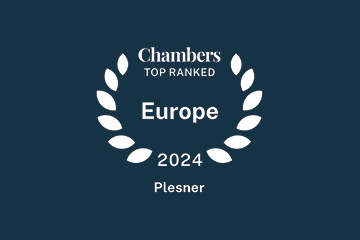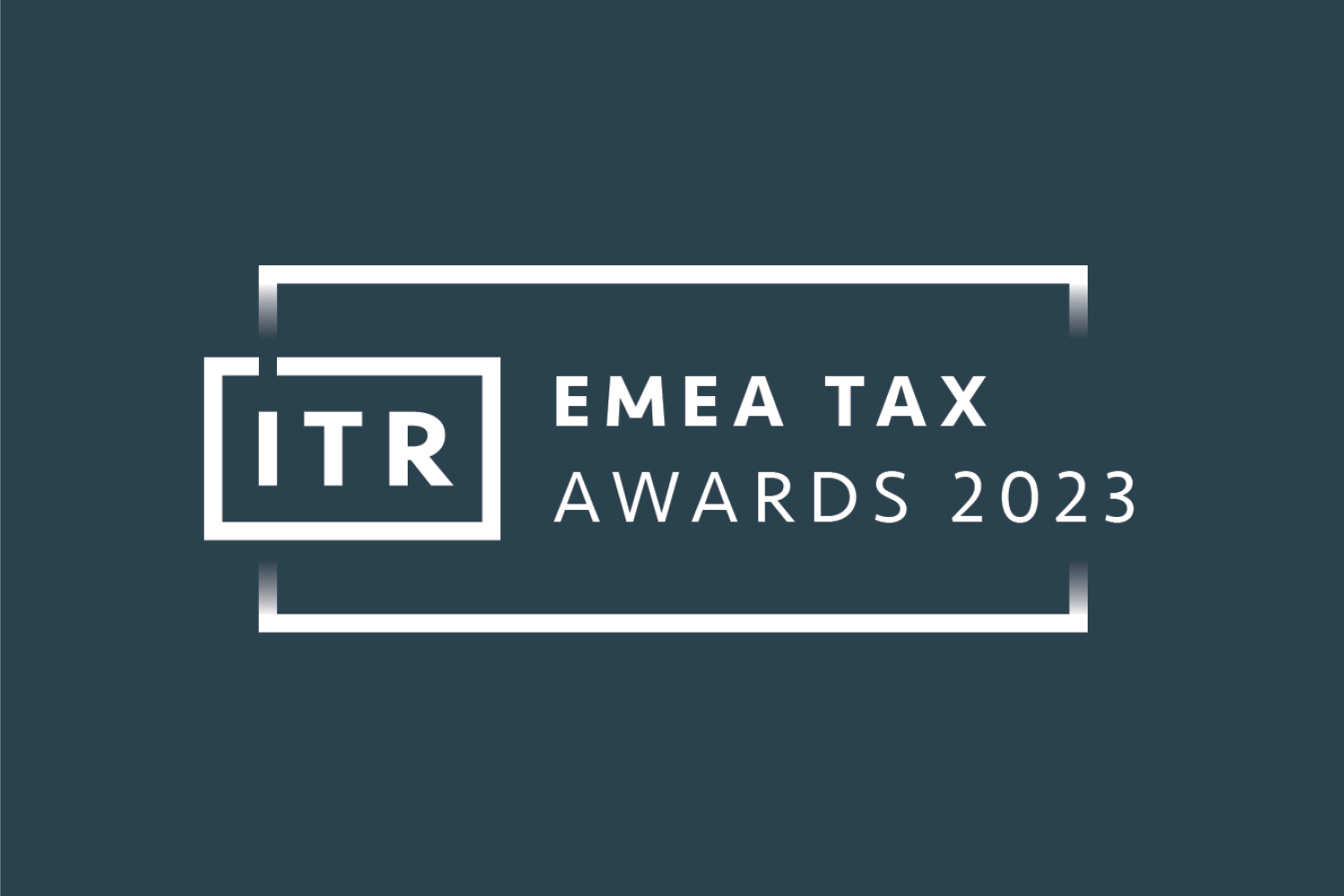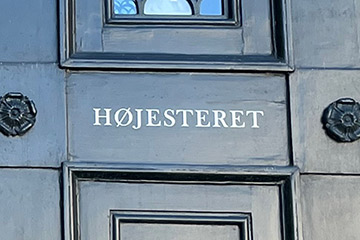

The DTA claims that the parent companies in question are so-called conduit companies because the amounts received, according to the DTA, have been passed on to group related entities in tax haven countries. The parent companies are consequently not the beneficial owners of the dividends or interest received - the Parent-Subsidiary Directive and the Interest and Royalties Directive have been abused - and the Danish subsidiaries should therefore have withheld tax at source in connection with such payments. As they failed to do so, the DTA is of the opinion that the Danish companies are liable for payment of the tax.
The number of cases is substantial, and the values involved are significant.
In addition to the questions referred to the Court of Justice of the European Union (CJEU)e in six pilot cases – which specifically concerned the interpretation of the Parent-Subsidiary Directive and the Interest and Royalties Directive, their interaction with the general EU anti-abuse principle, and their transposition into Danish law as well as of the freedom of establishment of the EC Treaty – the beneficial owner cases raise a wide range of additional questions.
These questions especially concern the interpretation of the relevant double taxation treaties, the significance of the DTA’s change in practice and the issue of whether the companies have acted negligently.
In addition, after the judgments of the CJEU it has become a central question of constitutional law whether the Danish courts can or must apply the "general EU anti-abuse principle".
Finally, also questions about how interest on late payment should accrue to a potential withholding tax claim have had a strong presence, see further below.
The two first cases that were decided by the Danish courts were the so-called ISS cases – one case involving dividend tax payments and another involving interest tax payments.
Plesner conducted both these cases for ISS A/S, and the court gave judgment in favour of ISS in both cases in 2012, i.e., ruling that no obligation to withhold tax at source existed.
The Danish Ministry of Taxation did not appeal against the judgments, and the outcome is therefore final.
The other beneficial owner cases are now finding their conclusion at the level where they are pending (the Danish National Tax Tribunal or the ordinary courts).
In six specifically selected test cases (out of which Plesner represented three tax payers), the Danish High Courts in 2016 referred a series of preliminary questions to the CJEU.
In her opinion Advocate General Kokott - supported by the Commission - expressed that the companies should be supported in almost every issue, but in its judgments of 26 February 2019 the CJEU did not follow the Advocate General.
After the CJEU judgments, the test cases were reassumed at the High Courts, and on 3 May 2021 the two first cases (the NetApp and the TDC cases concerning dividend withholding tax) were decided by the Eastern High Court. TDC lost its case whereas the High Court essentially ruled in favour of Plesner's client, NetApp.
The High Court, thus, held that NetApp had documented that the main dividend was made as part of the Group's planned repatriation of dividends to the Group's parent company in the USA (which could have been done in a tax exempt manner had the dividends been distributed directly), that the dividend was, in fact, distributed all the way up to the US parent company (why this entity was, in reality, the "beneficial owner" of the dividend), and that there consequently - as argued by NetApp - was no abuse of the Double Tax Treaties or of the Parent/Subsidiary Directive. Thus, the fact that the dividend had passed through an intermediary holding company in a state, with which Denmark had not concluded a Double Tax Treaty, was not decisive.
The judgment was appealed by the Ministry of Taxation to the Supreme Court (just as TDC appealed its judgment).
On 25 November 2021, the Eastern Division of the Danish High Court gave judgment in another two test cases (on interest withholding tax) - namely the case concerning Takeda/Nycomed represented by Plesner and NTC's case concerning payment of interest.
Not surprisingly, the Court upheld its interpretation as expressed in the NetApp and TDC cases in terms of a number of issues of principle. The Court ruled in favour of the Ministry of Taxation in both cases. In the Takeda case, the Court agreed with Takeda that there had been no flow of interest through to a country with which Denmark has not concluded a double taxation agreement, since the funds stopped in another EU country, Luxembourg. On the other hand, the Court followed the argument of the Danish Ministry of Taxation that the Luxembourg company in question, an S.C.A., SICAR company, could be compared to a so-called 1929 Holding Company, which is not covered by the Denmark-Luxembourg tax treaty.
The judgments were both appealed to the Supreme Court.
On 9 January 2023, the Supreme Court gave its judgment in the NetApp and TDC cases. The TDC judgment was upheld whereas the Supreme Court turned the judgment of the High Court upside down. Thus, the Supreme Court found that there was an abuse in relation to the main dividend in the case, whereas there was no abuse in respect of the second dividend distribution. In connection with the main dividend, the Supreme Court attached significant importance to the fact that the intermediary holding company - which was resident in a non-treaty state - was not cut off from disposing of the funds before they were actually passed on the ultimate shareholder in the USA 5 months after receipt. In relation to the second dividend the intermediary holding company did not have any rights to dispose independently of the funds since the funds had actually been passed on to the US parent company (by way of obtaining a loan) before the company had received the funds as a result of which the Supreme Court found in favour of NetApp, represented by Plesner, and ruled that there was no obligation to withhold dividend tax.
On 4 May 2023, the Supreme Court passed judgments in the two interest withholding tax cases, Takeda and NTC. The Supreme Court fully found in favour of the Ministry of Taxation in both cases. In the NTC case, the Supreme Court was, in general, in agreement with the assessment made by the High Court, whereas the Supreme Court in the Takeda case chose to disagree with the High Court and held that it was not proven that the final recipient of the interest at issue - a Luxembourg S.C.A., SICAR entity - was the "beneficial owner" of the interest. Consequently, the Supreme Court did not need to rule on the principle question as to whether or not a SICAR entity must be equated with a so-called 1929 holding company (which is not covered by the Danish-Luxembourg tax treaty).
Most recently, the Supreme Court has on 30 June 2023 decided a dividend case - the Heavy Transport case - in which the Supreme Court also ruled in favour of the Ministry of Taxation. Heavy Transport was represented by Plesner.
A number of other beneficial owner cases are still pending before the National Tax Tribunal and the courts.
Since the cases have been pending for a number of years, the question about the levying of interest on late payment of the withholding tax claims in the dividend cases (which have been brought before the ordinary courts by the Ministry of Taxation since the companies won the case at the level of the Tax Tribunal) have become an almost just as vital issue in the proceedings. The thing is that the DTA has not accepted that the companies may pay the alleged withholding tax claims (and thereby stop potential interest from accruing to the claims). As the cases now have been lost before the courts, the interpretation of the interest rules made by the Supreme Court in the NetApp case (which, inter alia, has the effect that compound interest accrues) leads to interest claims that are approximately twice as high as the withholding tax itself.
During the Supreme Court proceedings NetApp claimed, among other things, that it was a violation of the right to a fair trial under the European Human Rights' Convention and the EU Charter of Fundament Rights to levy such exorbitant interest on a tax claim - interest which could only be avoided by way of giving up the court case.
The Supreme Court did not concur with NetApp, but the Supreme Court did, however - quite unusually - urge the Danish Parliament to review the interest rules and assess whether or not these "very significant interest on late payment" were desirable.
In its case, Heavy Transport requested the Supreme Court to make a reference to the CJEU concerning a potential violation of the EU Charter, but the Supreme Court rejected this.
Apart from the mentioned cases, Plesner also represents a number of other clients in this group of cases.
In May 2020 the International Tax Review has awarded Plesner two "Impact Case Awards" for conducting the "beneficial owner" cases for the Court of Justice of the European Union.
For a detailed review of the DTA’s change in practice and its significance, see Hans Severin Hansen’s article "The great hypocrisy – the beneficial owner cases" in the Danish Journal for Taxes and Duties.
For a more detailed review of the Danish beneficial owner cases, see Plesner's review article "Danish beneficial owner cases – a status report" in the Bulletin for International Taxation.
See also EU tax litigation.







